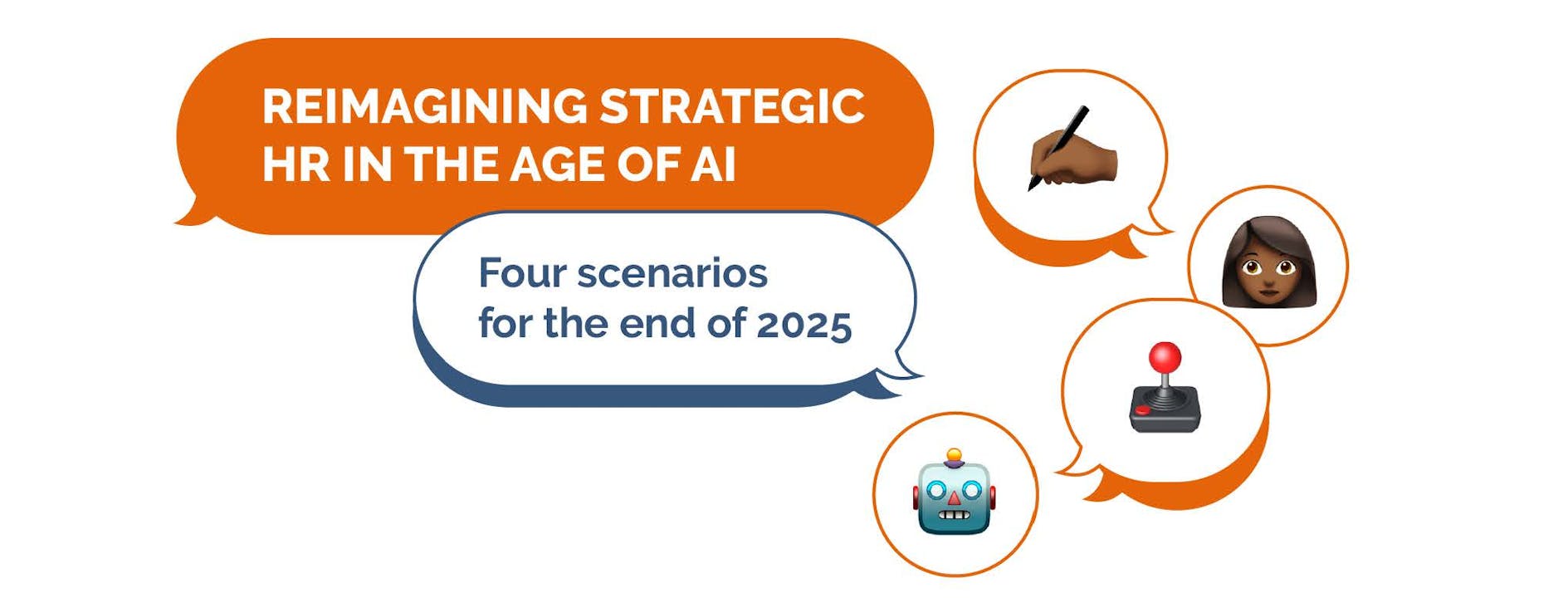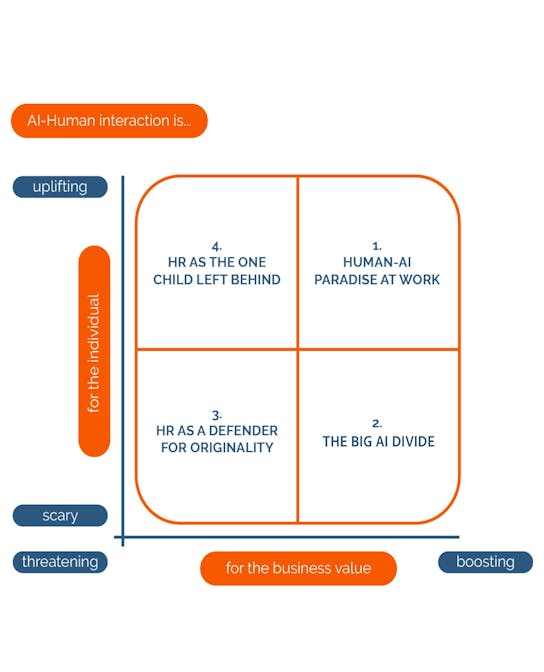Reimagining Strategic HR in the Age of AI
Case study: Collaborative paper on the impact of AI on strategic HR
LEAD Forward partnered with AI and HR experts to explore the transformative effects of AI on strategic HR/People and Culture. By applying a scenario-planning methodology, we identified four distinct scenarios of human-AI interaction and its impact on business by the end of 2025. This resulted in a collaborative paper which details each scenario and is accompanied by a series of recommendations for CEOs, leaders, CHROs and HR professionals, and politicians/regulators.

The Role of AI in Strategic HR by 2025
Currently, future-minded organizations are exploring how AI will affect their business models and how they can adapt. Identifying risks and opportunities while getting upskilled on the topic are becoming priorities of the moment. Traditional HR staff – particularly those working with employees and corporate cultures – may struggle to adapt to new tech, but one thing is clear: AI will transform People & Culture work. Understanding how AI could affect strategic HR work in the future is essential to get future-ready as an organization. Not only to prepare for best case scenarios but also to understand and adapt to more critical ones.
Four Scenarios by 2025
- Human-AI paradise at work: There is a blissful world full of possibilities. AI works; we humans love it. It makes us stronger, better, more effective and, ultimately, free. HR is a light that shows the way to transform into the new.
- AI divide – the next big rift in society: Rifts in society are mirrored in organizations. Winners have mastered AI, losers have missed the train. Distrust and fear become the zeitgeist. A serious unemployment crisis looms.
- HR as a defender of originality: It pictures a future where AI has culturally almost equalized most organizations tightening competition. Everything is efficient – that is, AI-driven. People are longing for uniqueness, creativity, and human imperfection. Organizational leaders realize they need to take these qualities into account, and to nurture them.
- HR as the one child left behind: It describes a future in which HR is viewed as a handbrake on techno-logical advancement. While AI has propelled other parts of the business forward, HR is entangled in regulation, works-council opposition, and lack of tech know-how.

Recommendations for Senior Leaders and HR professionals
What can decision-makers do today to intentionally navigate toward best case scenarios and prepare for the most critical ones? CEOs will need to strategically integrate AI in line with company values, while HR professionals will have to ethically leverage AI for competitive advantage and prepare for a major AI upskilling. Leaders will have to develop AI literacy and guide their teams through AI-driven changes, while regulators will need to formulate policies balancing AI progress with the protection of employee rights and societal well-being.
While AI offers immense possibilities for enhancing HR functions, it also presents challenges that require thoughtful planning, ethical considerations, and strategic leadership. The future of HR in the age of AI will largely depend on its ability to adapt, innovate, and integrate AI into its core functions while preserving human values and organizational culture.
experts collaboratively assessing the impact of AI on strategic HR
plausible scenarios assessing human-AI interaction were co-created
factors and related outcomes selected based on their level of impact and uncertainty

